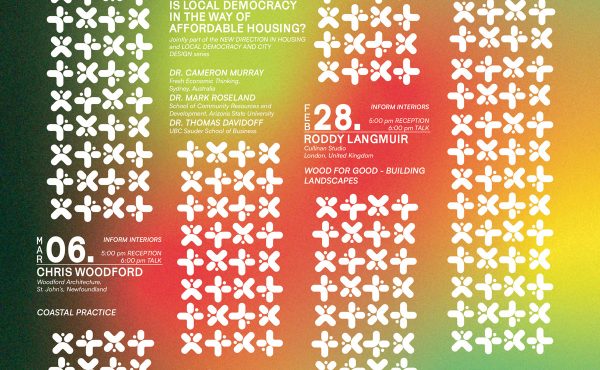
[This six-part series was written in 2007 and is set in 2030. It describes a scenario of how Vancouver became a One Planet City—a city that uses only its fair share of Earth’s resources.]
In 2007, after a stint in Vancouver’s Sustainability Group, I was asked to consult to the City of Vancouver’s Planning Department to work on the EcoDensity Initiative. As with all creative processes, the period of brainstorming for the initiative gave way to the time of aligning dreams with reality. At long last, the Director of Planning and other senior managers were hunkering down to draft the Action Plan…but then July came around and staff went on strike.
Being a consultant, I found myself with considerable free time but hoping to keep EcoDensity focused on the imperatives of climate chaos and resource constraints. So, I took my pants off. That summer, I sat in my boxer shorts and, hoping a story of a possible future could help the EcoDensity Initiative maintain big goals, wrote this document—which has been separated here into six parts.
By putting this forward, I hoped to make the necessary seem achievable, rather than just settling for the possible. I hoped to fight the curse of the planner—doing what we can, rather than doing what we must.
Given the highest profile outcome of EcoDensity has been laneway housing—something I argued against and continue to argue against—this little vision was clearly not enough. Still, it is wonderful to look back and see how far Vancouver has come in such a short time. In fact, it is hilarious to look at some of the articles I linked to back then—many of the things I wrote seem much less outlandish now, while others seem more naive.
Five years ago, food security and urban agriculture had very little traction. Now, the City is planting fruit trees, chickens are legal, and there are more Farmer’s Markets than you can shake a stick at. We made it through the Olympics. Bike lanes are being treated seriously. Green building expectations get stronger and stronger. All good stuff. But, there remains a wide gulf between what we must do, and what we think we can do.
Introducing One Planet Vancouver, 2030
What you are about to read is fictional, an ‘artist’s impression’ of what life in One Planet Vancouver might look like in 2030, and of the changes that allowed us to get there. One Planet Vancouver, a sustainable Vancouver, can only use its fair share of the Earth’s resources—currently, if everyone on the planet lived as we do, we would need four planets to support us all.
Although the Vancouver I will describe is imaginary, it is created from a series of realizable scenarios. We have no crystal ball, but many aspects will very likely be a part of our real future. It is meant to capture the imagination and to inspire a shift towards what we know is possible.
It is also written from the desire to have the foresight to proactively manage our risks, acknowledging that the stability of the last 12,000 years is swinging far out of balance due to the choices of the last hundred years. Stability will come again; the question is how hospitable that stable state will be to Vancouver as we currently know it.
I believe that achieving a more stable and secure One Planet Vancouver will not require any magic, or even anything other than current off-the-shelf technology. In fact, compared to the enormous public works and infrastructure projects undertaken for the Olympic Games, the individual steps to achieve One Planet Vancouver will seem tiny.
What One Planet Vancouver will require is courage, especially from decision makers and those who have the ability to influence decision-makers. These are the people who must translate the imperative and the opportunity, both to politicians and other staff. It cannot be understated how important these managers are to securing our future. It cannot be understated how much the future of Vancouver hinges on their courage and their action. Their leadership must be unequivocal; if it is, it will resonate within the region, and around the world.
The world is watching Vancouver and we will set an example, for better or for worse. If the practices that made us Four Planet Vancouver is the best we can provide, we will have missed a profound opportunity.
Every element of this story connects to part of the system that supports, creates and enables Vancouver. Every element impacts at least one, but likely several, of the main contributors to our Ecological Footprint: Buildings, Transportation, Food, Waste and Consumption.
This imaginary tale may sometimes seem fantastical, but it is nothing but an extrapolation of existing practices, information and precedents.
Vancouver is famous for transforming, rather than reducing, quality of life. Many people have traded in their suburban lifestyles for more livable urban environments, ask them if they miss their commute, and it will be clear how much we can change and how easy it will seem.
Let’s take a look at One Planet Vancouver, 2030……
***
He has consulted for the City of Vancouver. BC Housing, Industry Canada and private sector clients, and taught Sustainable Design. While researching behaviour, one of his pilot projects increased recycling and composting by 250%.
He has blogged for TreeHugger.com and theTyee.ca. His recent writing and presentations can be found at www.SmallAndDeliciousLife.com


